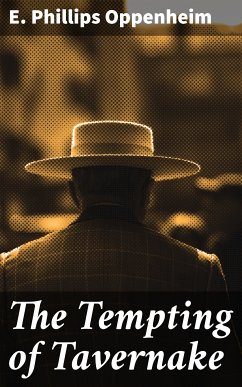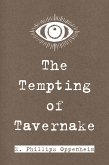In "The Tempting of Tavernake," E. Phillips Oppenheim crafts a compelling narrative that delves into themes of ambition, desire, and moral complexity within the framework of early 20th-century British society. The novel is characterized by Oppenheim's signature blend of psychological insight and intricate plotting, drawing readers into the tumultuous life of its protagonist, Tavernake, as he navigates the seductive allure of wealth and power against a backdrop of intrigue and betrayal. Oppenheim's literary style is marked by descriptive elegance and sharp dialogue, which enhance the tension and emotional stakes throughout the narrative. E. Phillips Oppenheim, known as the "Prince of Storytellers," was a prolific author whose works often reflect the societal shifts of his time, particularly the tumult of the pre- and post-World War I eras. His personal experiences in the upper echelons of British society and his understanding of human psychology uniquely positioned him to explore the inner lives of his characters. This background imbues "The Tempting of Tavernake" with a layer of authenticity and relevance, as he examines the interplay of societal expectations and personal aspirations. This novel is highly recommended for readers who appreciate rich character development and a deep exploration of moral dilemmas. Oppenheim'Äôs keen observations on human nature and society, paired with his masterful storytelling, make this work not only a gripping tale but also a reflection on the choices that define us. A must-read for fans of psychological drama and historical fiction.
Dieser Download kann aus rechtlichen Gründen nur mit Rechnungsadresse in A, B, BG, CY, CZ, D, DK, EW, FIN, F, GR, H, IRL, I, LT, L, LR, M, NL, PL, P, R, S, SLO, SK ausgeliefert werden.









